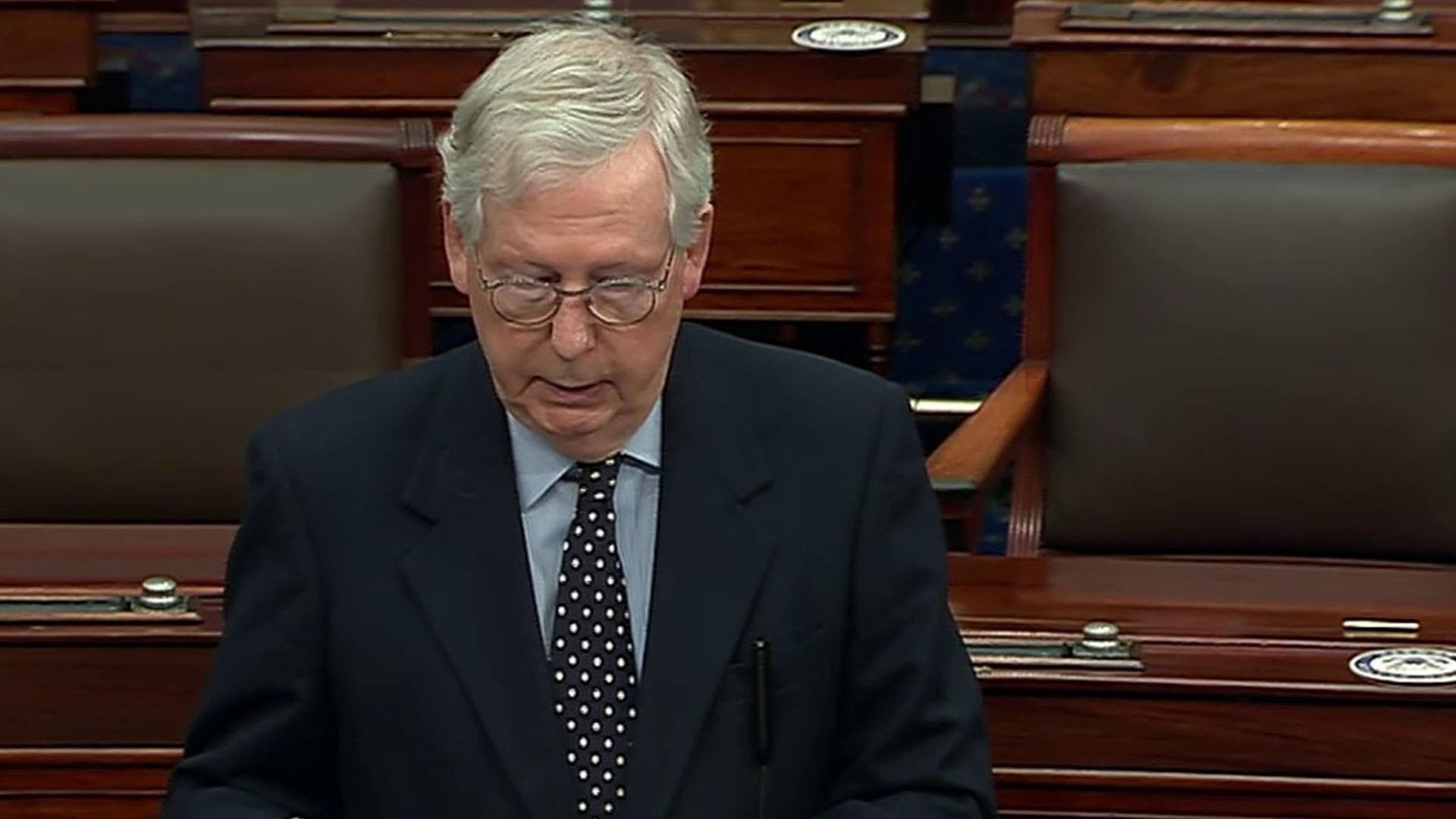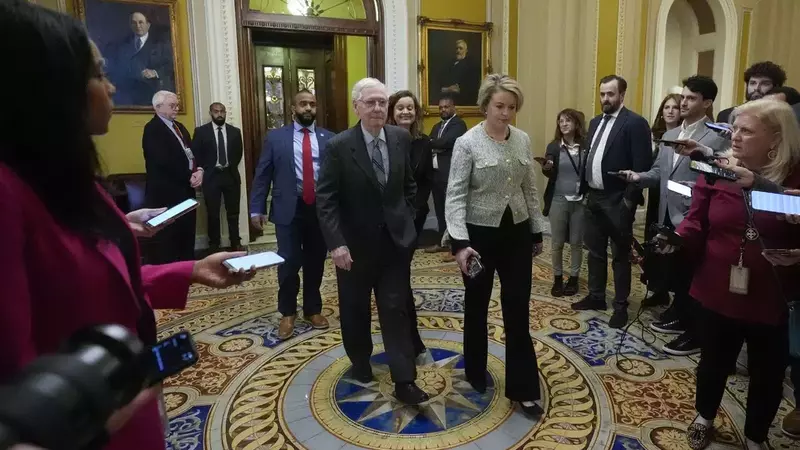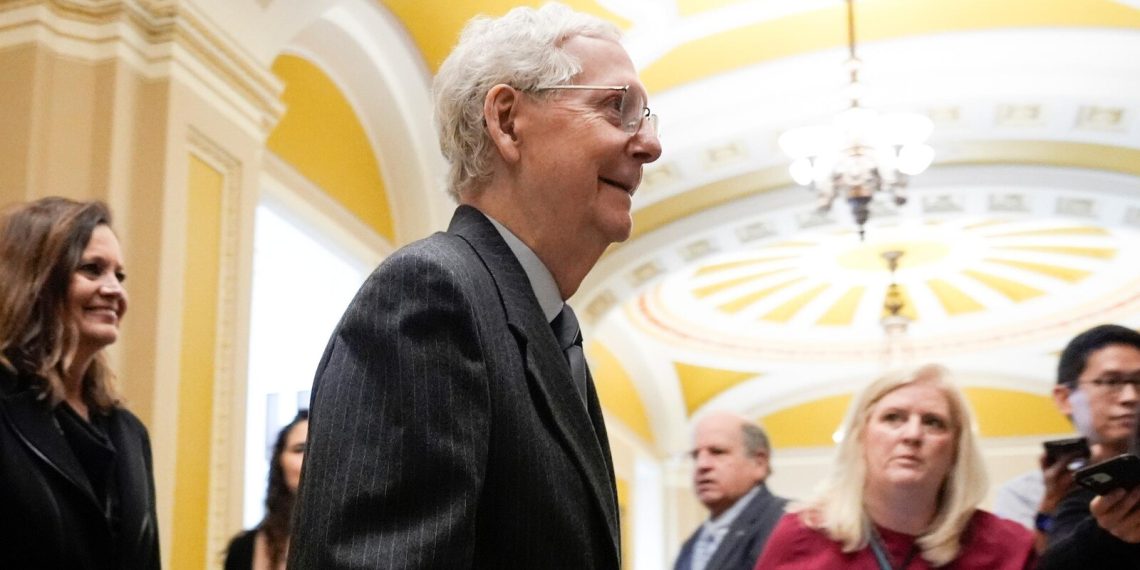Mitch McConnell‘s decision to relinquish his role as U.S. Senate Republican leader has sparked discussions about the chamber’s future direction, particularly regarding the influence of Donald Trump’s brand of populism.
With McConnell planning to pass the torch after the November election, there’s speculation that the Senate, traditionally more deliberative than the House, could experience a shift toward a more assertive and populist leadership style.

Senators, serving six-year terms representing entire states, historically have maintained a degree of insulation from partisan pressures compared to their House counterparts. However, recent dynamics suggest a changing landscape.
Some newer senators, like Roger Marshall, express a more populist inclination, signaling a potential departure from the establishment leadership style exemplified by McConnell.
McConnell’s firm grip over Senate proceedings contrasts with the House, where Republican hardliners have challenged leadership repeatedly. His departure opens the door for a successor more aligned with Trump’s vision, potentially altering the Senate’s approach to key issues like foreign policy and bipartisanship.
While McConnell has been criticized by both hardline Republicans and Democrats, his strategic maneuvering earned him the moniker “Grim Reaper” among Democrats for thwarting their legislative priorities.

A shift towards a more populist leadership could impact U.S. foreign policy, particularly in areas like support for NATO and aid to Ukraine in its conflict with Russia.
Challenges lie ahead for McConnell’s successor, with potential contenders including Senators Thune, Cornyn, and Barrasso. However, the transition underscores broader shifts within the Republican Party, reflecting the evolving preferences of GOP voters and the influence of Trump’s base.
The next Republican leader will need to navigate these dynamics while assuring senators that their interests will be represented. As McConnell’s tenure comes to a close, the Senate braces for a new era characterized by changing leadership dynamics and the rising influence of populist sentiments.




